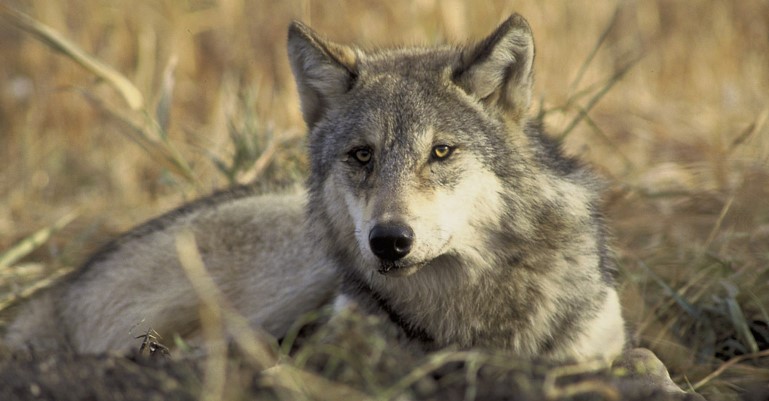Bill would delist gray wolf
Management of gray wolves would be returned to state control after two 2014 federal court decisions reinstated protections under the ESA.

New legislation with bipartisan support would return management of gray wolves to state control. The bill was introduced in the House by Reps. Sean Duffy (R., Wis.) and Dan Newhouse (R., Wash.).
Management of the gray wolves was transferred from the state to the federal level following two 2014 U.S. District Court decisions that reinstated gray wolves under the protections of the Endangered Species Act (ESA). These designations leave farmers and ranchers in those states without a legal avenue to protect their livestock from wolves, the legislators said.
“Wisconsin deserves the opportunity to use science-based wildlife management for our own gray wolf population because we know what’s better for our state’s ecosystem better than activist judges in Washington,” said Duffy. “I’m proud to introduce bipartisan legislation to delist the gray wolf because Wisconsin farmers deserve to be able to protect their livestock, and they should not suffer because of the decisions made by an overreaching federal government a thousand miles away.”
“According to the U.S. Department of Interior and U.S. Fish & Wildlife Service’s (FWS) best available scientific evidence, the gray wolf is not endangered and no longer warrants federal endangered species’ protection,” said Newhouse. “Our bipartisan legislation would take sound science into account. It would return management of the gray wolf to the states according to the needs of the species as well as the needs of farmers and ranchers in central Washington.”
Earlier this summer the House Oversight & Government Reform Subcommittee on the Interior, Energy and Environment held a hearing titled, Preserving Opportunities for Grazing on Federal Land.
The testimonies of Dave Eliason, a fourth-generation Utah cattle producer testifying on behalf of the National Cattlemen’s Beef Assn. and Public Lands Council, and John Helle, a third-generation sheep and wool producer from Montana, testifying on behalf of the American Sheep Industry Assn., pointed out that litigation through the National Environmental Policy Act (NEPA) and the Equal Access to Justice Act (EAJA) has become an unavoidable obstacle for ranchers seeking to put conservation benefits on the ground.
Eliason shared that the litigation-driven focus on listings has derailed true species conservation efforts and rendered the current ESA largely dysfunctional.
These litigants include the Center for Biological Diversity, Defenders of Wildlife and WildEarth Guardians, which are responsible for 46% of active petitions under the ESA. Eliason cites the gray wolf as a species these groups have used to target the livestock community.
“Despite following the process, doing their homework, and going through the full delisting process, FWS was immediately litigated on their final rule. That litigation ultimately resulted in the rule being overturned,” Eliason said. “As a result, the gray wolf remains listed to this day despite exploding populations and increasing predation issues. That’s not science, it’s a hijacking.”
About the Author(s)
You May Also Like





